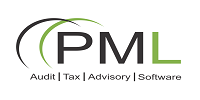TAXATION OF SPECIAL BUSINESSES

Special Business Tax (SBT) is another kind of indirect tax introduced in 1992 to replace Business Tax. Certain businesses that are excluded from VAT will instead be subject to SBT.
Special Businesses are so classified because of the peculiar nature of their income, expenditure and the impact on tax payable. SBT include Insurance businesses, Air Transport, shipping and Telecommunication and Unit Trust scheme.
The insurance businesses is of two type, the Life Insurance and Non-life Insurance Businesses.
For a life insurance businesses, the adjusted profit is obtained by deducting the management expenses and commissions from investment incomes which include every dividend, rent, or interests received.
However, it should be noted that for Nigerian income tax purpose, premium incomes and surpluses on actuarial Valuations are not to be considered as income chargeable to tax. The surplus on actuarial valuations that would be subjected to tax is limited to the amount distributed to shareholders as dividend.
Also, it must be reminded that from 1995 year of assessment, any profit generated from the Life Business cannot be utilized to reduce any loss made from the Non-Life business. This is because, from 1995, a Life Business is to be considered as a different line of business, different from the Non-life business.
More so, where a portion of the profit is derived from abroad then the income chargeable to tax in Nigeria shall be the proportion of the total investment income of the company as the premiums receivable in Nigeria bears to the total premiums receivable less the agency expenses in Nigeria and a fair proportion of the head office expenses.
For a Non-Life Insurance business, on the other hand, the adjusted profit is arrived at by aggregating all premiums to arrive at the Gross premium. From the Gross, Premium is deducted payments on reinsurance and returns to the insured to obtain the net premium. From the net premium, add investment incomes, commissions received and other taxable incomes. Deduct therefrom, claims and commissions, agency fees, administration expenses, the share of head office expenses and other allowable expenses.
For a Nigeria company, the income chargeable to tax is the global income irrespective of whether or not there are branches outside Nigeria. On the other hand, for a Non-Nigeria company, the income chargeable to tax is limited to the income derived from Nigeria while the allowable expenses are limited only to those incurred in Nigeria.
Another special Business Taxation is the Air Transport, Shipping, and Telecommunication Business, for these businesses, the tax liability will generally arise on the profit in the normal way for any other company. This is achieved by taking the net profit or loss and then adding or deduction of items. What however makes them special is the fact that the businesses may apply to Federal Inland Revenue Service (FIRS) to be subjected to tax using two ratios which are Adjusted Profit Ratio and Depreciation Ratio
Note however that a taxpayer is only able to exercise this option where it can be proved that the tax authority of the country where the company is normally resident computes and assesses tax on basis that is not materially different from that of Nigeria.
For any company that wants to take advantage under this provision, a formal application to be assessed on the basis of the two ratios should be made not later than six years from the year of assessment concerned.
Lastly, Special Business tax also includes the Unit Trust Scheme which was established for the purpose of providing facilities for the participation of the public, as beneficiaries under a trust, in profits or income arising from the acquisition, holding, Management or disposal of securities or any other property whatever in respect of the income arising to the trustees of an authorized unit trust have effect:
- As if the trustees were a company whose business consists mainly in the making of investment and the principal part of whose income is derived therefrom.
- As if the rights of unit holders were shares in the company
- As if so much of the income accruing to the trustees as is available for payment to the unit holders were dividends on such shares.
The adjusted profit of a Trust Scheme is obtained by deducting management expenses and Unit Trust managers’ remuneration from investment income.


